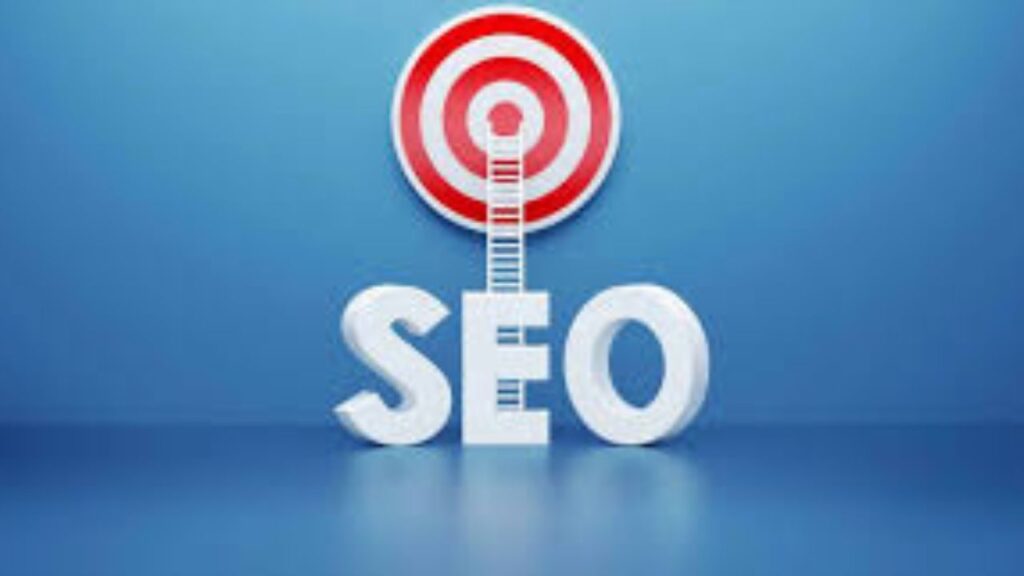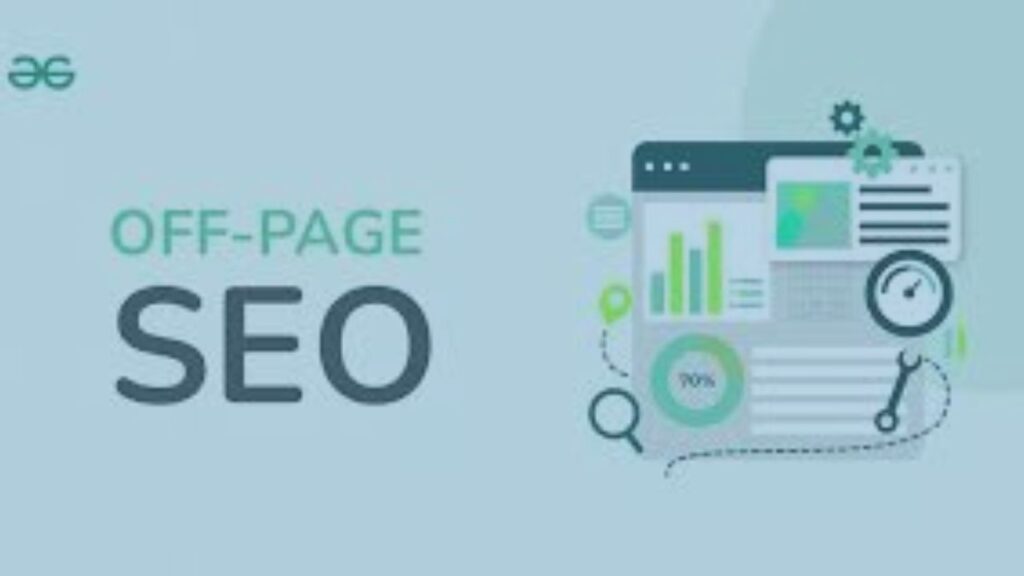Table of Contents
ToggleWhat Is SEO And Why Is It Important For Website
What is SEO and why is it important for website. SEO helps in ranking our website on Google. It is important for traffic on your website that your website should be shown on the first page of Google so that people come to your website and traffic on your website increases. First of all let us know what is SEO.
What Is SEO?
Search Engine Optimization (SEO) is the process of optimizing a website to improve its visibility and ranking on search engine results pages (SERPs). The goal of SEO is to increase organic (non-paid) traffic from search engines like Google, Bing, and Yahoo by making the website more attractive to these search engines.
SEO involves several critical components: keyword research to identify the terms potential visitors use when searching for relevant content; on-page SEO, which includes optimizing web page elements such as content quality, title tags, meta descriptions, header tags, and image alt text; off-page SEO, which focuses on acquiring high-quality backlinks from other websites and leveraging social media to drive traffic; technical SEO, which ensures the website meets the technical requirements of search engines, such as fast load times, mobile-friendliness, and proper use of sitemaps and robots.txt files; and local SEO, which targets geographically-specific searches to attract local customers.
Effective SEO enhances a website’s relevance and authority, leading to higher rankings, increased organic traffic, better user experience, and ultimately, greater credibility and profitability for the business.

Key Components of SEO
1. Keyword Research
Keyword research is a critical aspect of Search Engine Optimization (SEO) that involves identifying and analyzing the search terms that people use when looking for information, products, or services online. This process begins with understanding your niche and brainstorming potential keywords relevant to your business.
Utilizing tools like Google Keyword Planner, SEMrush, and Ahrefs, you can gather data on search volume, competition, and keyword trends. Analyzing competitors’ keywords can also reveal gaps and opportunities. Important metrics to consider include search volume, keyword difficulty, relevance, and user intent.
Emphasizing long-tail keywords, which are longer and more specific phrases, can attract targeted traffic with higher conversion rates. Organizing keywords into clusters and regularly updating your keyword strategy ensures that your content remains relevant and competitive. Effective keyword research drives targeted traffic, enhances content relevance, and ultimately improves your website’s visibility and ranking on search engine results pages.

2. On-Page SEO
On-page SEO refers to the practice of optimizing individual web pages to improve their search engine rankings and attract more relevant traffic. This involves various elements within the content and HTML source code of a page. Key components include high-quality, original content that provides value to users and is enriched with relevant keywords identified through keyword research.
Proper use of title tags and meta descriptions is crucial, as these elements influence click-through rates from search engine results. Header tags (H1, H2, H3, etc.) are used to structure content, making it easier for search engines to understand the hierarchy and relevance of information on the page.
URL structure should be clean and descriptive, often incorporating primary keywords. Additionally, optimizing images with appropriate file names, alt text, and compression helps improve page load times and accessibility. Internal linking is another important aspect, as it helps distribute page authority and facilitates navigation. Overall, on-page SEO is essential for making a website search engine-friendly, enhancing user experience, and boosting organic search visibility.

3. Off-Page SEO
Off-page SEO encompasses all the activities conducted outside of your website to improve its search engine rankings and visibility. The primary focus is on building high-quality backlinks from reputable sites, as these links act as votes of confidence, signaling to search engines that your content is valuable and authoritative.
Strategies for acquiring backlinks include guest blogging, where you contribute articles to other websites in exchange for links, and influencer outreach, which involves collaborating with industry influencers to promote your content.
Social media marketing also plays a significant role in off-page SEO by driving traffic and encouraging shares and engagement, which can lead to more backlinks. Additionally, local SEO practices, such as managing online directory listings and garnering positive reviews, help improve your site’s relevance in local searches.
Effective off-page SEO boosts your website’s credibility, drives more organic traffic, and ultimately enhances your overall search engine performance.

4. Technical SEO
Technical SEO involves optimizing the backend structure and foundation of a website to enhance its visibility and performance in search engine results. This includes ensuring that the site is easily crawlable and indexable by search engines through the proper use of sitemaps and robots.txt files.
Site speed optimization is critical, as faster loading times improve user experience and search engine rankings. Mobile-friendliness is another crucial factor, given the increasing number of users accessing the web via mobile devices; responsive design and mobile usability are key components here.
Additionally, fixing broken links, duplicate content issues, and ensuring clean URL structures contribute to a well-optimized site. Overall, technical SEO lays the groundwork for a website’s success by making it efficient, secure, and user-friendly, ultimately improving its search engine performance and user experience.

5. Local SEO
Local SEO focuses on optimizing a website to increase its visibility in local search results, which is crucial for businesses that operate in specific geographic areas. This involves optimizing your Google My Business (GMB) profile by providing accurate information such as business name, address, phone number, hours of operation, and customer reviews.
Consistent NAP (Name, Address, Phone number) information across all online directories and citations is essential for local search accuracy. Local SEO also includes targeting location-specific keywords and creating content that addresses local interests and events.
Encouraging satisfied customers to leave positive reviews and responding to them can enhance your business’s reputation and rankings. Additionally, building local backlinks from relevant regional websites and engaging with the community through social media can further improve your local search presence.
By implementing these strategies, local SEO helps businesses attract nearby customers, drive more foot traffic, and compete effectively in their local markets.

Importance of SEO
There are many benefits of SEO, the first advantage is that it helps in ranking your website on Google, the rest is explained in detail further, stay with us till the end.
Read Also -: How to make best ecommerce website in 2024
1. Increased Visibility and Traffic
Increased visibility and traffic are primary objectives of SEO, achieved by optimizing a website to rank higher on search engine results pages (SERPs). When a site appears on the first page of search results, it gains more exposure, as users are more likely to click on top-ranked links.
Effective SEO practices, such as keyword optimization, high-quality content creation, and acquiring authoritative backlinks, enhance a site’s relevance and authority, leading to better rankings. Additionally, optimizing technical aspects like site speed and mobile-friendliness ensures a seamless user experience, which can positively impact search rankings. By attracting more organic traffic from search engines, businesses can reach a wider audience, increase brand awareness, and potentially boost conversions and sales.
In essence, increased visibility and traffic through SEO efforts not only improve a website’s presence online but also contribute to its overall success and growth.

2. Credibility and Trust
Credibility and trust are essential benefits of effective SEO, as higher search engine rankings often translate to greater perceived authority and reliability. When a website consistently appears at the top of search results, users tend to view it as a leading and trustworthy source in its industry.
This trust is built through various SEO practices, including the creation of high-quality, relevant content that addresses users’ needs and queries. Additionally, obtaining backlinks from reputable sites acts as endorsements, further enhancing the website’s credibility.
Ensuring a secure browsing experience with HTTPS, along with a well-structured and user-friendly site, contributes to building user trust. Positive user experiences, reflected in metrics such as low bounce rates and high engagement, signal to search engines that the site is trustworthy and valuable. Ultimately, SEO-driven credibility and trust lead to increased user confidence, higher conversion rates, and long-term customer loyalty.

3. Cost-Effective
SEO is a cost-effective marketing strategy that delivers long-term benefits compared to traditional advertising methods. Unlike pay-per-click (PPC) campaigns, which require ongoing investment to maintain visibility, the traffic generated through SEO is organic, meaning it doesn’t incur a cost per click.
Initial expenses in SEO may involve hiring experts, investing in tools, or developing high-quality content, but once these elements are in place, they continue to attract visitors without additional spending. Furthermore, SEO targets users who are actively searching for products or services, leading to higher conversion rates and better return on investment (ROI).
By focusing on sustainable practices such as content optimization, keyword research, and link building, businesses can achieve lasting visibility and engagement. In essence, SEO’s cost-effectiveness lies in its ability to provide a steady stream of qualified traffic and leads over time, maximizing marketing budgets and driving growth.

4. Better User Experience
SEO that directly impacts how visitors interact with a website, ultimately influencing its search engine rankings. SEO practices such as improving site speed, ensuring mobile-friendliness, and creating an intuitive navigation structure make the website more accessible and enjoyable for users.
High-quality, relevant content that addresses users’ needs keeps them engaged and encourages longer site visits. Proper use of header tags, bullet points, and images enhances readability and helps users find information quickly.
Additionally, secure websites with HTTPS instill trust and confidence in visitors. By focusing on these elements, SEO not only boosts search engine rankings but also enhances overall user satisfaction, leading to lower bounce rates, higher engagement, and increased likelihood of conversions.

5. Competitive Advantage
SEO provides a significant competitive advantage by enabling businesses to outrank their competitors in search engine results, thereby capturing a larger share of organic traffic. By conducting thorough keyword research, businesses can identify and target terms that potential customers are using, ensuring their content meets these needs better than their competitors.
High-quality content, optimized for relevant keywords, positions a website as an authoritative resource, attracting more visitors. Additionally, obtaining backlinks from reputable sites enhances credibility and boosts rankings. Technical SEO practices such as optimizing site speed and mobile-friendliness improve user experience, further setting a site apart from competitors.
Regularly updating content to reflect the latest trends and user preferences ensures sustained relevance. By effectively implementing these SEO strategies, businesses can stay ahead of their competitors, attract more qualified leads, and achieve better long-term growth and visibility in their market.

6. Higher ROI
SEO offers a higher return on investment (ROI) compared to many other marketing strategies due to its ability to attract targeted, organic traffic without the continuous costs associated with paid advertising. While the initial investment in SEO may involve expenses for tools, content creation, and professional expertise, the benefits are long-lasting.
Once a website is optimized, it continues to draw traffic without additional spending per visitor. SEO targets users who are actively searching for specific information, products, or services, leading to higher conversion rates. Effective SEO strategies, such as keyword optimization, quality content, and link building, ensure that the site ranks well in search results, maintaining visibility and attracting potential customers.
This ongoing organic traffic means sustained lead generation and sales, making SEO a cost-effective approach that delivers substantial long-term returns, enhancing the overall profitability and growth of the business.

Conclusion
In this blog, we learned what SEO is, what are its components and also we learned about its importance, what is the importance of SEO and how it works.
Well, all these things seem easy to read, but are even easier to do. All you need is a Mentor who can guide you step by step and tell you how to improve the performance of your website on Google.
In Rozy Digital Community, all this is taught in detail and not only this, many such strategies of digital marketing are explained in detail, which give better results in less time.
If you are also interested in learning these strategies, then register now for this Free 90 Minute Webinar of Rozy Digital, where I will share all this knowledge with you live.
Hurry up because only limited seats are left.
